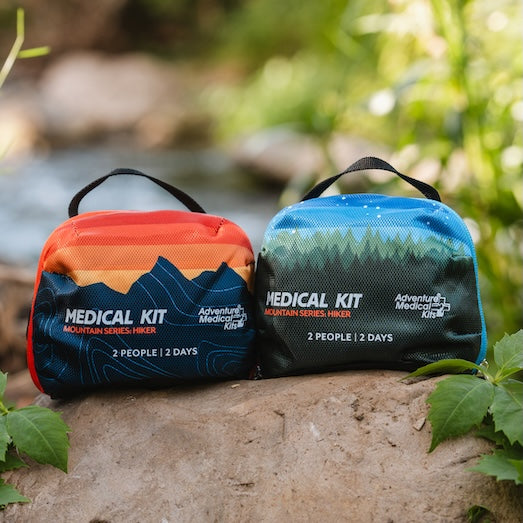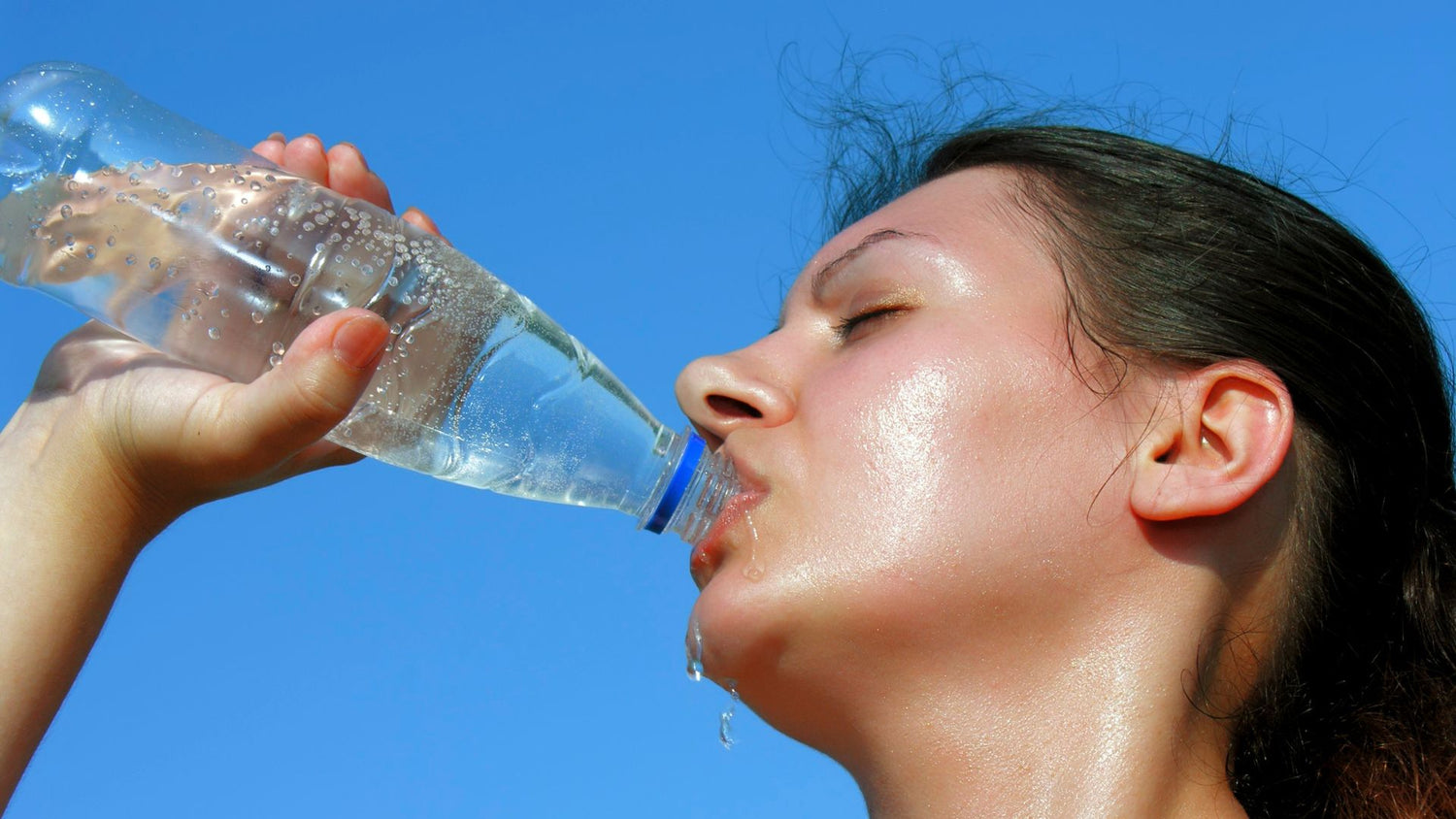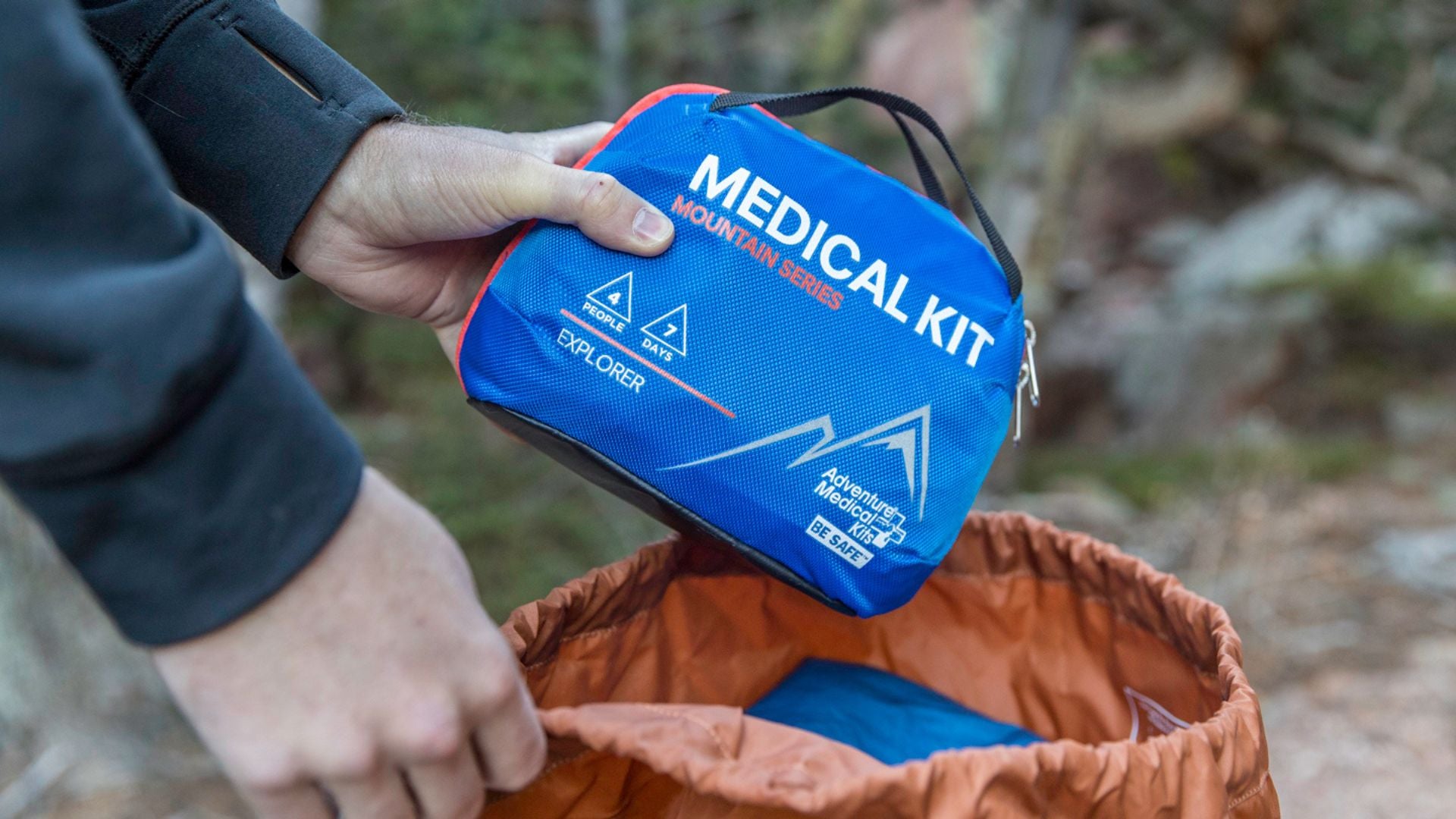It's always wise to remember the risks that high temperatures, sun, humidity and exertion can bring. Regardless of athletic prowess, age, or gender, the weather has an enormous affect on our bodies. Some days it’s better to adjust your plans and explore when the heat is less intense in the early mornings or after the sun has set. Keeping hydrated is key to preventing heat illness. Water is the fuel our bodies need to cool from the inside out.
Sweating is the main source of cooling the body during exertion and warm conditions. When you’re overheated, the blood vessels near the skin dilate so that more blood can reach the surface and dissipate heat. If you’ve waited too long to drink water and have become dehydrated, the body is limited in its ability to sweat and evaporate heat.
Read on to learn how to address heat-related illnesses and how you can prevent them on your next outing. And Always grab a first aid kit and basic survival gear so you’ll be ready.
Basic First Aid Skills - Heat Exhaustion and Heatstroke
Taken from Adventure Medical Kits’ Wilderness & Travel Medicine Guide By Dr. Eric A. Weiss.
Heat Exhaustion
Signs and Symptoms
Typical symptoms of heat exhaustion include:
- Flu-like symptoms (weakness, malaise, headache, nausea and loss of appetite)
- Vomiting
- Dizziness upon standing or a laying position
- Dehydration
- Elevated core temperature(usually below 104F
- Sweating
Treatment
- Stop all exertion and move patient to cool and shaded area
- Remove restrictive clothing
- Administer water and oral rehydration solutions
- **Ice or cold packs, if available, should be placed alongside the body, under armpits and on the groin area. Don’t place ice packs directly on the skin as they may induce frostbite. Protect the skin by buffering the skin with a cloth.
- Additional cooling methods include submerging the patient in cool water or wetting the skin with cold water and fanning the patient.
Heatstroke
Heat exhaustion that is not treated can progress into Heatstroke, which is a life-threatening medical emergency. Anyone suffering from a heat illness that begins to show altered mental states (loss of coordination, bizarre behavior, confusion) should be treated for heatstroke with rapid cooling and transported to the hospital.
Signs and symptoms:
- Elevated temperature (above 40C/105F)
- Altered mental state
- Rapid heart rate
- Low blood pressure
- Rapid respiration
- Sweating present but may be absent in some cases
Treatment:
- Cool the victim as quickly as possible, using methods noted above**
- Do not give the victim anything to drink because of the risk of vomiting.
- Do not administer acetaminophen or aspirin
- Treat for shock-keep the victim lying down, covered and insulated from the ground. Elevate the legs so that gravity can improve blood circulation to the heart and brain.
- Evacuate the victim to the closest medical facility
Prevention:
- Keep yourself hydrated.
- Dehydration is the most important contributing factor leading to heat illness. Thirst is a poor indication of dehydration. Do not wait until you are thirsty to drink. During exercise your body can easily sweat away 1-2 Liters (1-2 quarts) of water per hour. Refuel with at least .5 Liters water every 20 minutes throughout the day to ensure you’re adequately hydrated. In some cases, you may need more water.
- The best way to tell if you are hydrated is by urine color. Clear to pale yellow urine indicates you’re drinking enough. Dark, yellow colored urine indicates dehydration (Note: some medications and vitamins can turn urine yellow/orange)
- Exercise in the early morning or late afternoon when the sun is low and the heat is less intense. The potential for developing heat illness is greatest when the temperatures are above 35C/95F and the humidity level is over 80%.
- Allow yourself adequate time to acclimatize before exercising for prolonged periods in the heat. It takes the body about 10 days to become acclimatized to a heat environment.
- Wear clothing that is lightweight and loose-fitting for ventilation and light-colored to reflect heat.
- Get plenty of rest. A U.S. Army study found a correlation between lack of sleep, fatigue and heat illness.
- Avoid certain medications and drugs like antihistamines, anti-hypertension drugs etc. They can predispose you to heat illness.
